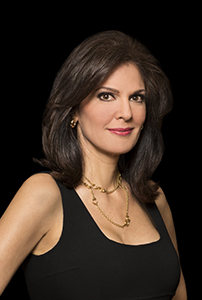Spotlight on Beauty: Science, Passion & Health

By Dr. Doris Day, MD
Close your eyes and think of the word “beauty.” What comes to mind? Is it a person, a place, a feeling, a sound? Beauty is complicated. I submit to you that beauty is a conglomerate of science, passion, health, generosity of spirit and desire. It can be fleeting and elusive for those who only see its pure physical sense.
Beauty, in a physical way, is highly subjective and is very different today than it was five, 10, 20 or more years ago. When I show my daughter photos of me when I was her age, she marvels at the hair styles, outfits and makeup that was popular “back then.” To her it’s interesting but is dated and doesn’t fit the current vision of what is beautiful for her generation. I know one day her children will say the same about her.
To break it down to the sum of its parts, beauty can be classified into subjective and objective forms. On a subjective level, it is a look, an emotion, an action. It exists in nature, it exists in our hearts, and it exists in the way we take care of ourselves and what we give back to others. The objective side of beauty has a highly scientific and mathematical backing that aesthetic physicians study for decades and discuss and debate at great lengths in meetings here and around the world to build and hone our rejuvenation techniques.
I study the objective forms of beauty by studying the old masters like Davinci, and I aim to make sure my patients only focus on the more subjective forms. In the end the result of both objective and subjective merges into this: we “feel” beautiful, it makes us happy to see beautiful things. Beauty doesn’t ask for attention. You can’t help but notice when you see it, you can’t help but feel the experience, and you can’t help but gain from it. When you look at a beautiful sunrise, bird, work of art or face you can’t help but make facial expressions and release hormones that inspire beauty within you.
As an aesthetic dermatologist I see patients every day who seek my advice and experience about what they can do to look beautiful. I often hear the line “one day my face just fell apart,” or “I look tired.” There’s almost always a story about why women, and more and more men too, come in when they do and about what they perceive as their flaws. Sometimes it’s that they are going to an event and an ex will be there, maybe with a younger wife or girlfriend; sometimes it’s a big birthday or reunion coming up and sometimes it’s a new job or holiday coming up that they want a little pick me up. I understand that. The common theme here is that the first thing I hear is the complaints. I can see they are missing the beauty.
They sometimes term it as they want to look younger, but I prefer it when they say they are looking to be more attractive. There is a very big difference between the two statements. Those chasing youth often in the end will keep asking for more filler and will only be happy if they have no lines or wrinkles or movement that creates a line or wrinkle, whereas those who look to be more attractive understand that it’s about balance and harmony rather than chasing the lines and wrinkles.
I have a few rules that I live by. One is that I don’t have mirrors on the walls in any room in my office. This is partly because I don’t want my patients looking and worrying over what they see as aging in their skin, and partly because I don’t want to look at myself all day. I know that if I look too much I’ll also fall prey to the same temptation to be hypercritical, a bad habit I have worked hard to break. For me, I look at myself in the mirror of my mind’s eye and to give you an example of what I see, I would say the closest would be Raquel Welch. That’s what I project and that’s what I assume everyone else sees. I also know, realistically that getting older is inevitable and there are changes that occur, some classic and common to all of us, but most of the changes we see are due to lifestyle. One of my main objectives is to counsel my patients and the public on the importance and value of a healthy lifestyle and how it impacts the skin and beauty. Simple things like sun smart behavior- wearing a hat, sunglasses, sun protective clothing, sunscreen and avoiding midday sun exposure- eating a diet high in anti-oxidants, getting enough sleep and staying hydrated will do wonders for your skin and you’ll see the difference within a week.
My other rule is that I don’t chase lines and wrinkles. I evaluate the face as a global aesthetic unit, and I look for proportion and balance. I also know that it takes a combination approach using devices like Ultherapy or Thermage which help tighten and lift the skin, along with neuromodulators like Botox or Dysport and fillers like Voluma and Restylane in discrete areas with very precise technique to rebalance. I often give my patients a homework which is to bring in a photo from when they were in their 20’s or 30’s. My goal is not to recreate the photo or try to make them look 20. My goal is to understand their balance and their features over time so I can make sure they always look like the best, most beautiful version of themselves.

Dr. Day, a dermatologist, is affiliated with NYU Langone Hospital.



